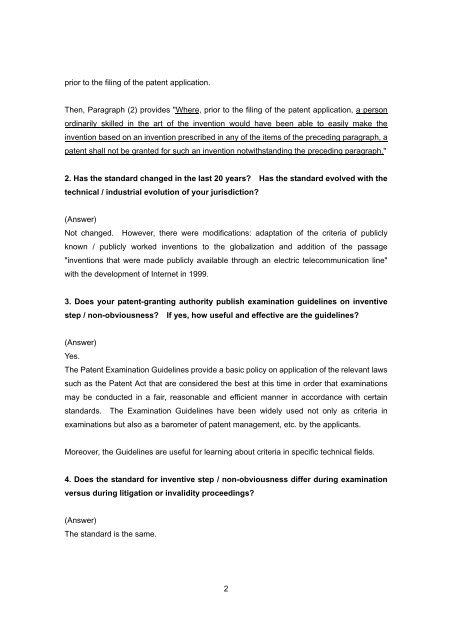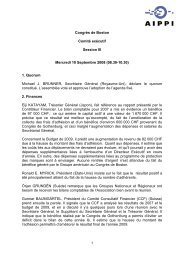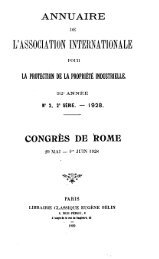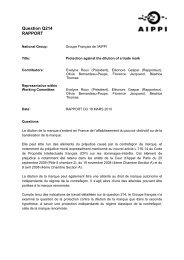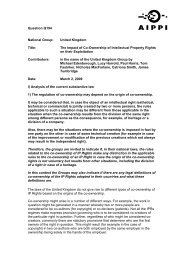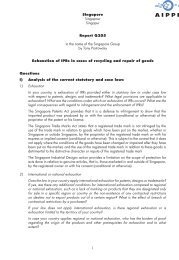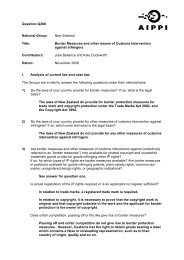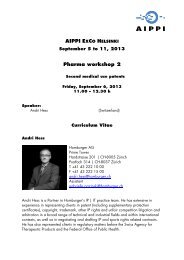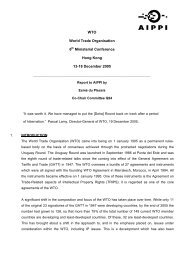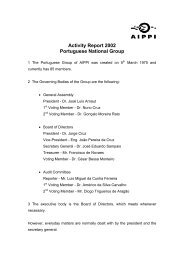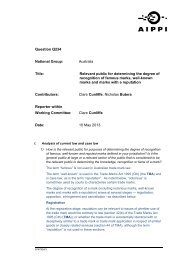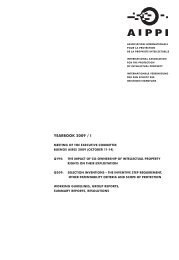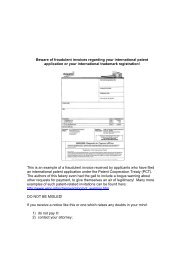Question Q217 - AIPPI
Question Q217 - AIPPI
Question Q217 - AIPPI
You also want an ePaper? Increase the reach of your titles
YUMPU automatically turns print PDFs into web optimized ePapers that Google loves.
prior to the filing of the patent application.<br />
Then, Paragraph (2) provides "Where, prior to the filing of the patent application, a person<br />
ordinarily skilled in the art of the invention would have been able to easily make the<br />
invention based on an invention prescribed in any of the items of the preceding paragraph, a<br />
patent shall not be granted for such an invention notwithstanding the preceding paragraph."<br />
2. Has the standard changed in the last 20 years? Has the standard evolved with the<br />
technical / industrial evolution of your jurisdiction?<br />
(Answer)<br />
Not changed. However, there were modifications: adaptation of the criteria of publicly<br />
known / publicly worked inventions to the globalization and addition of the passage<br />
"inventions that were made publicly available through an electric telecommunication line"<br />
with the development of Internet in 1999.<br />
3. Does your patent-granting authority publish examination guidelines on inventive<br />
step / non-obviousness? If yes, how useful and effective are the guidelines?<br />
(Answer)<br />
Yes.<br />
The Patent Examination Guidelines provide a basic policy on application of the relevant laws<br />
such as the Patent Act that are considered the best at this time in order that examinations<br />
may be conducted in a fair, reasonable and efficient manner in accordance with certain<br />
standards. The Examination Guidelines have been widely used not only as criteria in<br />
examinations but also as a barometer of patent management, etc. by the applicants.<br />
Moreover, the Guidelines are useful for learning about criteria in specific technical fields.<br />
4. Does the standard for inventive step / non-obviousness differ during examination<br />
versus during litigation or invalidity proceedings?<br />
(Answer)<br />
The standard is the same.<br />
2


